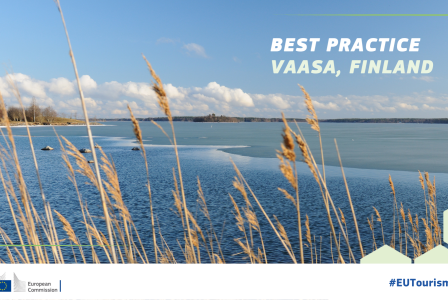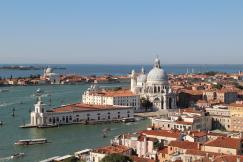Best practices
06 November 2025
Sustainable EU Tourism Project - Best Practice: Vaasa Region
Best practices
06 November 2025
Coastal, maritime and inland water tourism
Cultural tourism
Ecotourism
+6 more
Login / create an account to be able to react
-
16

Vaasa Region, Finland, tackled poor stakeholder coordination by adopting a sustainable tourism strategy led by its DMO. Through strong municipal and business engagement, EcoCompass certification, and the Sustainable Travel Finland (STF) label, the region built capacity and advanced eco-friendly tourism infrastructure. As a result, 30 businesses gained certification, sustainable transport expanded, and Vaasa became a finalist for the 2026 European Green Leaf Award, marking its shift toward resilient, responsible tourism.
Sustainable EU Tourism project
Topics
Finland
Destination Management & Marketing Organisations
Local Authorities
-
Specific types of tourism
-
-
Coastal, maritime and inland water tourism
-
Cultural tourism
-
Ecotourism
-
MICE tourism
-
Rural tourism
-
-
Transition Pathway Strategic Areas
-
-
Best practices, peer learning and networking
-
Governance of tourism destinations
-
Tourism strategies
-
-
Business activities
-
-
Activities of associations and other organisations supporting tourism
-
Share
Vaasa Region, Finland, has been recognised as a best practice by the Sustainable EU Tourism project for its collaborative stakeholder approach aimed at strengthening its sustainability commitment and implementing sustainability measures.
This achievement was made possible through effective stakeholder collaboration at both the municipal and business levels. Local communities were actively involved, with each municipality developing its own urban sustainability strategy, while tourism providers and entrepreneurs across the region were encouraged to join Visit Finland’s Sustainable Travel Finland programme. The DMO plays a central role in the transition to sustainable tourism and has implemented several measures, including adherence to Finland's National Principles for Sustainable Tourism (2023), the EcoCompass certificate, and the national Sustainable Travel Finland (STF) label (2024). In addition, the DMO promotes sustainable tourism by developing eco-friendly infrastructure and projects - such as enhancing the Kvarken Archipelago, contributing to the Bothnian Coastal Route, and improving cycling and nature trails—and by raising visitor awareness through comprehensive information on its website.
Vaasa Region is an example of how destinations can successfully initiate a green transition through strong stakeholder engagement. For more details on the key challenges the destination has faced and the solutions implemented to address them, please refer to the attached document.
Documents
Comments (0)
Related content
See also
Sustainable EU Tourism - Key challenges and best practices
- Categories
- Coastal, maritime and inland water tourism Cultural tourism Ecotourism +64 more
Crisis Management and Governance in Tourism project: Re-open EU
- Categories
- Coastal, maritime and inland water tourism Cultural tourism Ecotourism +19 more
Crisis Management and Governance in Tourism project: National Tourism Organisation of a Southern European Country
- Categories
- Coastal, maritime and inland water tourism Cultural tourism Ecotourism +19 more






